Within two bars of the overture starting, the first flashes could be seen. English National Ballet’s arena Swan Lake at the Albert Hall - they make no bones about it now - is intended for people who rarely go to the ballet. Actually it is in many cases for people who have no compunction about talking and taking pictures through the ballet quite routinely.
The most eyecatching movement to be seen last night from my stalls seat was the constant toing-and-froing of ushers throughout the performance to reprimand members of the audience for holding up their damn mobiles in video mode, bold as you please, so that people behind them were bugged by little blue-light screens everywhere. I had two right in front of me and half a dozen to the left of me, along with a group of chatterers. Others were visible all around. They wouldn’t be told. They just got those mobiles right up again five minutes later. After all, this is not theatre - this is an Event, and you take pictures at an Event.
Derek Deane’s arena stagings have come to define ENB, a company that’s become a victim of the runaway success of his first one, Swan Lake. He made it in 1997, wanting to lure new audiences more familiar with arena rock concerts. It was evident from the behaviour of many of its audience (it’s just got worse now) that the phalanx of 70-odd swans simply became marketable, like the Edinburgh Tattoo, as a Happening, and people won’t be stopped from getting pictures of a Happening (whereas they would happily put the mobile away to drink at the pool of Art). So for that reason alone, as they say on Dragon’s Den, I am out.
Well, I never was in on this production from the start. It always gave me a nasty pain to hear six dozen swans thundering about the stage when two dozen could have wafted, to endure the intrusive reality of the all-round visibility of the unlovely audience, and to have any poetic interface between me as spectator and the remarkable internal drama of Petipa, Ivanov and Tchaikovsky’s original concept made impossible by the mechanical wrenching and simplification of the choreography to serve four sides of viewing and a few big expected moments (pictured below).
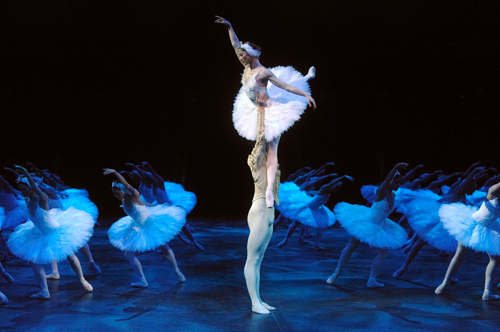
Still, this is not the only opinion possible. Quite apart from all the happy snappers last night, there was a great deal of loud applause: appreciation for the sparky, polished dancing by young Vadim Muntagirov - which shows audience good taste - and an animated reception for comely Daria Klimentova, the Swan Queen, a ballerina of perfect proportions and line and a lyrical amplitude of dancing. The rearranging of her role in the centre of battalions of swans meant that at several crucial times I could see her only from waist upwards, or the back of her, and at some distance too, and the sheer people-power of all those swan-girls creates a dramatic forcefield over which only a very few, exceptionally charismatic ballerinas can project Odette’s perilous fragility in any significant way.
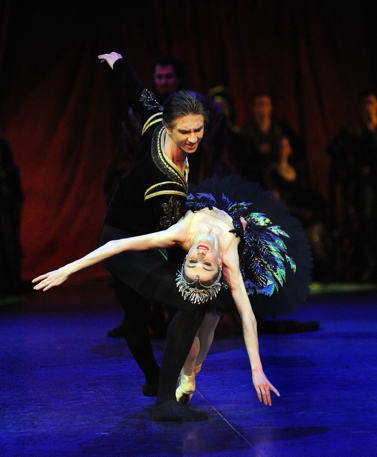 But Klimentova’s elegance made her, paradoxically, a superior Odile in the “black” act, sweet and relentless. And she is the gem of ENB in more ways than one. Not only had she stood in for the scheduled guest artist Polina Semionova (stranded by visa problems), but outside in the Albert Hall corridors an array of Klimentova’s lively and penetrating photographs of her colleagues showed that she can deliver both front-of-house excellence and backstage appeal for her company. What a treasure.
But Klimentova’s elegance made her, paradoxically, a superior Odile in the “black” act, sweet and relentless. And she is the gem of ENB in more ways than one. Not only had she stood in for the scheduled guest artist Polina Semionova (stranded by visa problems), but outside in the Albert Hall corridors an array of Klimentova’s lively and penetrating photographs of her colleagues showed that she can deliver both front-of-house excellence and backstage appeal for her company. What a treasure.
Still, last night’s palm goes to her young man, the 20-year-old Muntagirov (pictured left with Klimentova in Act Three), rapidly shooting up ENB’s ranks for readily understandable reasons and here giving his first ever performance of Prince Siegfried. He's a natural nobleman, with a fresh, boyish ardour - very appealing. Like Klimentova, he has long limbs and slender flanks, but there is nothing effete about his dancing, which rises from powerfully arched insteps and strong-thrusting legs into the air, closing in tight fifth positions as if finesse means a lot to him. This care ensures that most of his steps in the air hold splendid iconic ballet shapes. His hair seems modelled a little on Eighties Nureyev bouffant, but if his dancing and romantic ardour are too, we can stand the hair.
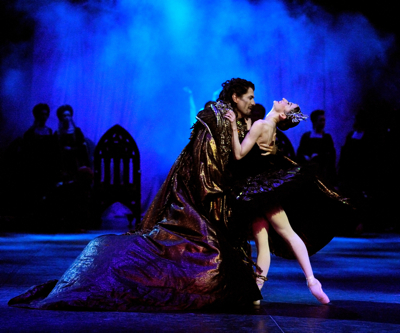 Tamas Solymosi flapped a huge bat-coat about very handsomely as the evil Rothbart (pictured right with Klimentova in Act Three), but the rest of it is literally ballet-by-arithmetic. Everything must seen in north, south, east and west of the arena, so most dances are doubled or quadrupled in number of performer and halved in complexity. A pas de trois becomes a pas de douze. The four cygnets become eight, travelling not in a comical zigzag but in less witty four-square symmetry. The big musical set-pieces of Act One display the admirable obedience and pretty arms of ENB’s corps de ballet (and of their reinforcements) - but if you have seen Swan Lake in the theatre and felt its magnetic emotional draw and noticed how unlike a grid diagram its choreography is, you might spot disappointedly that the ensemble have basically only three options from Deane: to encircle the stage, to occupy its centre or to draw lines across it.
Tamas Solymosi flapped a huge bat-coat about very handsomely as the evil Rothbart (pictured right with Klimentova in Act Three), but the rest of it is literally ballet-by-arithmetic. Everything must seen in north, south, east and west of the arena, so most dances are doubled or quadrupled in number of performer and halved in complexity. A pas de trois becomes a pas de douze. The four cygnets become eight, travelling not in a comical zigzag but in less witty four-square symmetry. The big musical set-pieces of Act One display the admirable obedience and pretty arms of ENB’s corps de ballet (and of their reinforcements) - but if you have seen Swan Lake in the theatre and felt its magnetic emotional draw and noticed how unlike a grid diagram its choreography is, you might spot disappointedly that the ensemble have basically only three options from Deane: to encircle the stage, to occupy its centre or to draw lines across it.
There's plenty of evidence of Deane's eye for tidy detail and tasteful image. The non-dancers keep moving, so that the front rows don’t just get stuck behind a male bottom unable to see anything else; his successor-but-one as ENB director and old mucker Wayne Eagling has ensured that performances are precise and respectful - nothing remotely vulgar. Peter Farmer’s costumes are very nice (the court wears a comfy range of mustard shades from Dijon to Colman’s), and the swan-girls are exceptionally beautiful in embroidered white tutus and generous white-feathered bandeaus. Gavin Sutherland conducts rhythmically and mostly briskly from the orchestra’s distant eyrie in the gallery. Howard Harrison’s rock-gig lighting injects some climactic electricity into the final moments of Deane’s unelectric “happy” ending.
The skill and craft are undeniable; it’s just all so fatally misapplied, and ENB is now stuck delivering a hugely successful but cruelly limited idea of a serious and magical ballet to an audience decreasingly able to know the difference. There is a very good ENB Swan Lake by Deane - the orthodox production he did simultaneously with this one - but it’s not the one people expect from ENB. Swan Tattoo is what they want now.
- ENB performs Swan Lake in-the-round at the Royal Albert Hall until 19 June
- Klimentova and Muntagirov open a run of Cinderella by Michael Corder at the London Coliseum 11-15 August

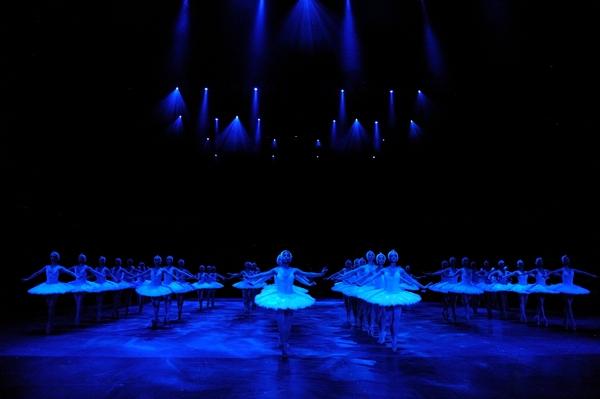



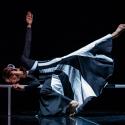
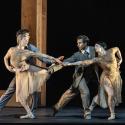
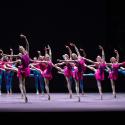
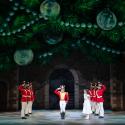
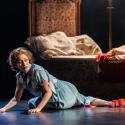


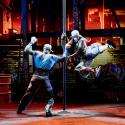

Add comment